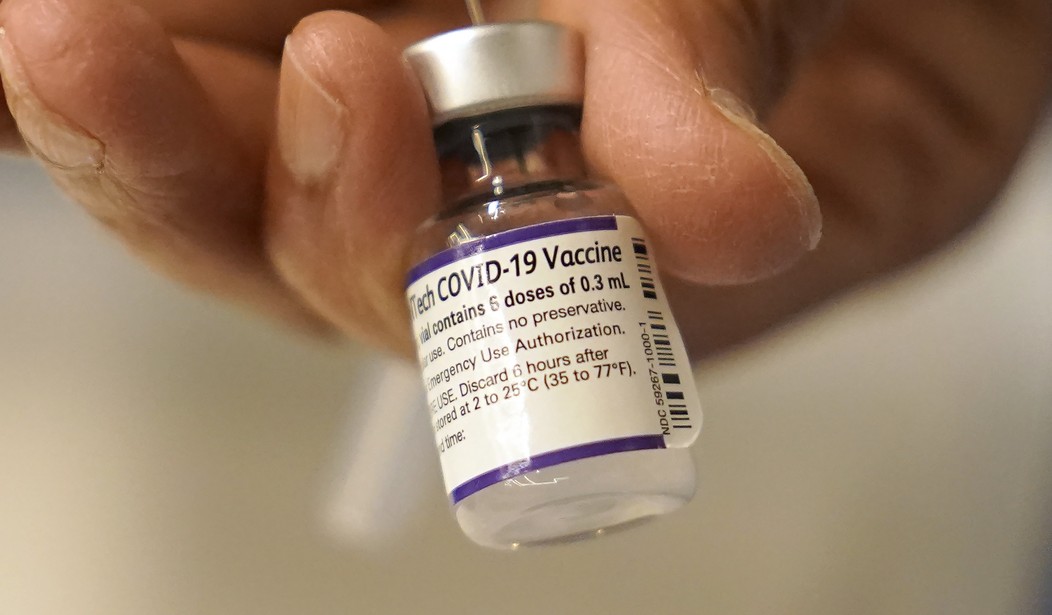The National Defense Authorization Act for 2023 passed the Senate last night and the “must-pass” legislation now heads to the Oval Office for the President’s signature. As usual, the bill is festooned with countless pet provisions from many members that have nothing to do with the military, but one critical and applicable provision survived the process. In a blow to the Biden administration, the bill will end the mandate for military service members and aspiring recruits to have the COVID-19 vaccination. Biden and his Secretary of Defense had sought to block the measure, but it became clear this week that the bill wouldn’t make it out of the Senate without the vax mandate being terminated. (NY Post)
The Senate passed an $858 billion defense spending bill on Thursday that would end the Defense Department’s mandate for troops to receive the COVID-19 vaccine.
The Biden administration had opposed efforts to include the vaccine mandate repeal in the 2023 National Defense Authorization Act, but Republican negotiators were successfully able to include language nixing the 2021 directive by Defense Secretary Lloyd Austin in the bill’s final language.
The 2023 NDAA passed the Senate by an overwhelmingly bipartisan margin in an 83-11 vote. It now heads to President Biden’s desk for his signature.
Rand Paul and a dozen other Republican senators had drawn a line in the sand and said that they would vote against the bill if the vax mandate for the military wasn’t rescinded. That was enough to put the measure over the top. Biden is still grousing about it, but he really has no choice about signing the legislation.
If we’re lucky, perhaps this represents a trend signaling the return of at least some common sense in Congress. Our military remains composed of primarily younger, healthier, and generally male people. They are among the least likely to experience a serious or fatal outcome if they contract the virus. Of course, this does nothing to address the question of why so many young, healthy men are suddenly dying of heart failure. You can choose to believe it’s because of the mRNA vaccines or not, but it’s still something to keep an eye on when it comes to the well-being of our troops.
Perhaps the military’s recruiting issues will ease up a bit in the coming year. There are clearly a variety of factors involved in why the Army is on track to be 15,000 soldiers short for 2022, including the availability of so many better-paying jobs in the civilian world. But recruiters have also regularly reported potential recruits balking when they were informed that they had to be vaccinated. This week’s change may be at least one less barrier to signing up more young people.
The question that remains unanswered is what will happen to all of the troops who were discharged or voluntarily left the service rather than be forced to take the vaccine. More than 8,400 active-duty service members have been discharged because of the mandate and another 10,000 Army Reserve and National Guard troops have been barred from drills and training (as well as getting paid) due to their unvaccinated status. Will they all be welcomed back now, assuming they are interested and available? Another GOP amendment that would have mandated the recall of those troops with back pay failed to pass in the Senate.
We now have a portion of a generation of soldiers, sailors, and airmen who wound up being vaccinated against their will just so they could keep serving their country. And there is no way to “unvaccinate” them. They will now see new classes of recruits joining their ranks without bearing that burden. It’s going to be an uncomfortable situation for a while. And someday our elected officials will need to be forced to look back on this period and understand how we got so many things wrong about the pandemic.







Join the conversation as a VIP Member